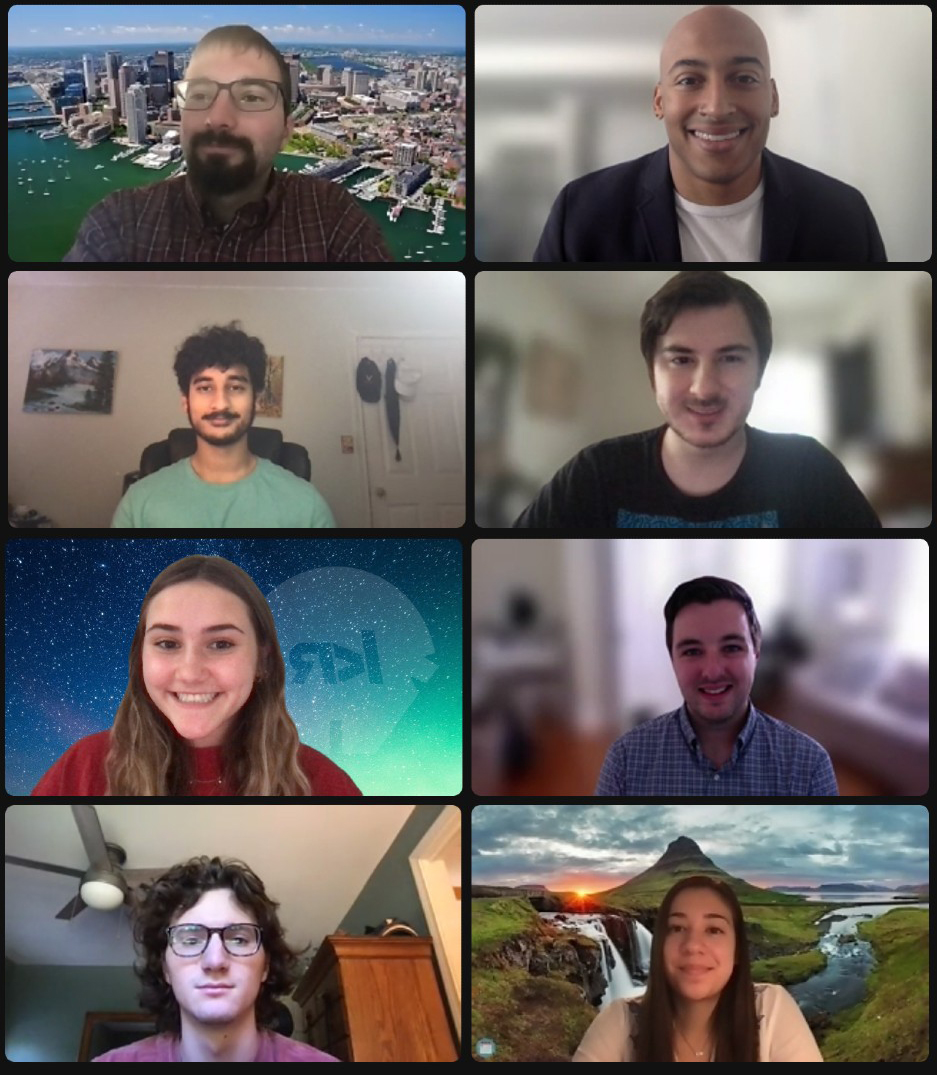
Charting the Kessel Run
By Liz Benecchi
Benecchi is a sophomore at Harvard College studying Government and worked at Kessel Run as an Engagement Team Intern

As a 19-year-old college student, I never thought I could have a personal impact on my country’s national defense. Prior to this summer, I was admittedly narrow-minded in what I identified service to be and the weight that my contributions could have. Short of the brave men and women who choose to enlist, I would have never imagined someone my age could truly help our nation become more secure.
From Indiana to Maine, Kessel Run interns come from all over the country to help fuel the innovation that leads our nation’s defense. Regardless of what experiences they’ve had in the past or the abundance of opportunities they’ll surely have in the future, this group is connected by their impressive potential and willingness to be vulnerable, learn and take risks. Being diverse in nature is pivotal to the success of our organization, and as a workplace, Kessel Run emphasizes prioritizing ideas over rank, an intense customer focus, bias for action and continuous evolution to ensure the delivery of premier software.
This summer, Kessel Run hosted 10 interns, each with their own unique stories and backgrounds. Some have worked on political campaigns, others for startups and some are even veterans themselves. A few of the interns are pursuing their Master’s degrees, while others are still in the earlier stages of their undergraduate years. They have different focuses, like computer science, software engineering or even communications. But one thing is for certain: the talent that Kessel Run attracts from top-tier universities across America is incomparable.
Being an intern myself, I was excited to reflect with my peers on their summer experiences and hear their perspectives on how we do things at Kessel Run. With each conversation I had, I found there were many common threads and similar praises that we all shared.
From even just the first few weeks working at Kessel Run, the accepting and trustworthy nature of the organization shined through. Ulises Rodriguez, a Software Engineering Intern from Northeastern University, explained, “Kessel Run is very open and diverse. It feels extremely welcoming. You can come from any background, culture, sexual orientation or gender, and I can feel that they really care about the person.”
While it’s true that Kessel Run dedicates much of its mission to helping Airmen, the employees themselves are extremely valued and treated with care on a day-to-day basis. Coming to Kessel Run, many of the interns appreciated seeing the emphasis on psychological safety and mental wellbeing in the workplace. Psychological safety is believing that you can speak up with ideas, questions or mistakes without facing punishment or scrutiny from your co-workers. When initially joining and onboarding to the organization, every new Kessel Runner must participate in psychological safety training. This standard clearly speaks to the character of the organization: whether you work remotely or in-person, your ideas are valued and protected.
But psychological safety isn’t just an abstract idea or aspiration at Kessel Run, it’s a practice. Jonathan Trailor, a Computer Science Intern from Northeastern University, said, “Something my team talks about — and something I totally agree with — is the importance of psychological safety as a team. I’ve seen so many concrete steps put into place that my current team embodies.” And Caroline Ruggiero, a Computer Science Intern from Cornell University, agrees. She outlined, “My team has a meeting every week, and we fill out a Google Form about team health and how comfortable we are feeling. And they actually show that data to everyone, and if there’s any decrease in psychological safety, they’re obviously going to address it.”
However, achieving positive employee mental health simply cannot be done without effective communication and trust, and accordingly, these are workplace norms that Kessel Run has embraced. Thoughts and notes of clarification are highly encouraged, and when I asked Cody Snoreck, a Cybersecurity Intern from Purdue University, about his interactions with his team and superiors, he responded, “I’m not afraid to ask anybody if I need help, and I feel like they value my thoughts.”
Communication is at the center of what we do at Kessel Run, and it helps us remember why the work really matters. As Matthew McAlarney, a Computer Science Intern from Worcester Polytechnic Institute, put it, “I think that Kessel Run is doing a really good thing allowing all of its employees to directly communicate with each other…It makes me feel like I'm a part of a larger division that's larger than just myself. I'm working toward a goal that's bigger than myself.”
With so many talented Kessel Runners, it’s important to understand why they choose to do this work in the first place. As leaders in the software space, our employees have elite expertise and a myriad of job opportunities at their fingertips, but they choose to work at Kessel Run because of their love for service. Many of the interns, including myself, share this sentiment. McAlarney said, “The ethics of private industry tech companies are not always what they should be. And I feel that working for Kessel Run and doing software for the Air Force overall serves a great purpose, and I'm proud that I'm contributing to it.” When speaking to Sam Millette, a Cybersecurity Intern from the University of Rhode Island, he posed, “I could go work for a corporation and make somebody else money, or I could work for the government and do something that's in a way more meaningful.” Coming from personal experience, feeling a sense of pride and meaning from one’s job is gratifying and truly fulfilling.
On that note, everything done at Kessel Run has real impact, and interning here is anything but stereotypical. Instead of running to get coffee, I was running through mission briefs and communications strategy plans with my team leads. My internship was almost entirely remote, which for me, was a perfect fit; however, I did have the opportunity to be hybrid and go into the office whenever I wanted. Speaking to my own intra-team dynamics, there was never a day that I felt like an “intern.” I was always kept in the loop on larger and longer-term projects that other members of my team were working on and felt very interconnected across all types of communication. As I wrap up my last couple of weeks at Kessel Run, I will undoubtedly remember how uplifting and motivating my team was. Their encouragement was not just reassuring, but it pushed me to be better, even in moments for growth.
While the innovation work done at Kessel Run is truly impeccable, so are the innovators. Aside from all of the war-winning software that is developed, the interpersonal relationships built and the team culture established also contribute directly to the organization’s success. It truly takes a village — which surely includes hardworking interns — to make the Kessel Run.
If you are interested in pursuing an internship at Kessel Run or with the Air Force more generally, please visit our Careers page to learn more about the opportunities available. Internships for undergraduate and graduate students are offered through the Premier College Internship Program (PCIP), and opportunities for longer-term on-the-job training for recent graduates are available through the Air Force’s Palace Acquire Program. Moreover, Kessel Run pairs with DoD programs, like the National Security Innovation Network (NSIN), to give dedicated students and recent graduates a chance to serve their country by solving national security problems in collaboration with the U.S. military.